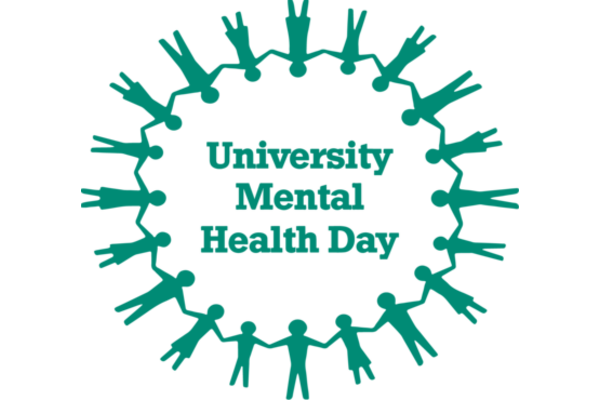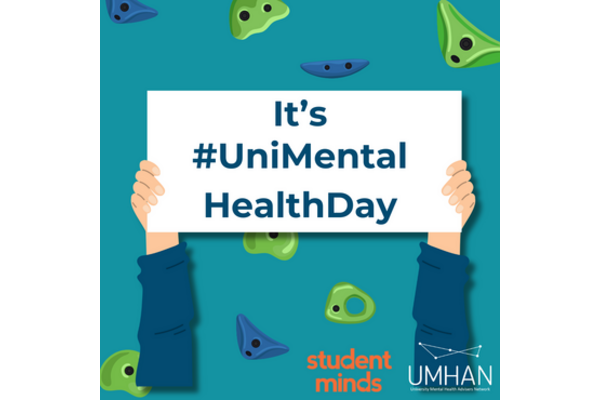It's the 15th Uni Mental Health Day and an opportunity to reflect on progress made in improving student mental health, as well as some of the challenges. Phil Scarffe introduces us to UMHAN's new Clinical Governance for Mental Health Services in Education document, which can be downloaded by following the link below.
There is a lot of commentary, a lot of guidance, and countless conferences on student mental health and wellbeing, there’s specific funding allocated by OFS for mental health related issues, we have a student wellbeing tsar, and it has become common for senior leaders in HE to state that they prioritise staff and student wellbeing, in much the same way that many state their passion for equality and inclusion.
To have got this far, is I think, in no small measure due to the tireless efforts of UMHAN members, as well as our allies in organisations like AUCC, AMOSSHE, and NADP. When I speak to mental health professionals working in Higher Education its fair to say they don’t always seem to be in a celebratory mood about this. I’m sure that is in part because progress has been incremental rather than revolutionary, and as much as we would strive to be reflective practitioners its not always easy to find the time, or head space to view the long road we have travelled.
There are other issues at play too; a colleague from an institution who were pursuing accreditation under the University Mental Health Charter scheme commented that a challenge in making progress had been trying to engage their senior leaders (a necessary part of achieving accreditation), whilst ensuring that developments were based on a sound understanding of the principles of mental health.
One of the strengths of UMHAN is that it has always been outward looking, and it is at the forefront of advancing the philosophy that mental health is everyone’s business, rather than building on the mythology of mental health practice, and I’m proud to be associated with an organisation which such an inclusive agenda.
That’s a very challenging approach to take though, and requires enormous reserves of energy and enthusiasm. The landscape around mental health in HE can, with so many competing voices, sometimes end up feeling a bit chaotic. I’m sure we can all think of wellbeing related initiatives which seem, however well intentioned to somehow spectacularly miss the point, though this is by no means unique to the education sector.
We all want rapid progress on mental health in education, though inevitably our experiences on that front will differ. There are some institutions which have begun to understand that their very effectiveness as a business, is heavily influenced by their approach to wellbeing, whilst at the other end of the scale there are those which remain pretty much in denial about the scale of the issues.
Culture is however, only moving in one direction, so whilst there may be outliers at either end of the spectrum, it does feel like the majority of universities will sooner or later have to engage realistically with student mental health, and start to adopt some kind of agreed methodology in doing so.
How do we support and encourage that, whilst trying to do our best to prevent unregulated activity and approaches spinning us off in directions which are at best unhelpful, may compromise our professionalism, and be potentially dangerous for students?
Clinical Governance
It is interesting in all the developments around mental health in higher education there has been relatively little comment publicly about how we develop things safely and in a sustainable way. The publication of Clinical Governance for Mental Health Services in Higher Education by UMHAN is therefore a very timely addition to the literature.
Now, a document about good governance, may not seem as immediately appealing as a Netflix’s drama, but in an early plot twist, it breaks the fourth wall, by discussing the need for its own existence, which it says related to the fact that ‘All mental health interventions carry the risk of doing harm rather than good and without the parameters of good governance in place it is possible that individual staff and services deliver interventions that are sub-optimal or even harmful’.
How often are mental health professionals working in HE asked to provide generic ‘support’ to an individual, or perhaps even worse, directed to provide something which sounds very specific but is in fact highly nebulous, like ‘anger management’, simply because a student has a high profile, and without any clinical assessment having taken place?
An important principle that is explored in the guidance is that ‘Senior staff should respect the voices, expertise and experience of clinically trained staff, and defer to this expertise where appropriate. Where clinical risk management groups only contain one clinically trained member of staff, significant and appropriate weight should be given to their professional judgement, although decisions should be made collectively.’
Where the power balance lies in such decision making is going to be institution specific, and heavily influenced by whether the institution has a participatory or top- down approach to leadership. The risk of decisions being made without good clinical governance in mind is however, always going to be heightened when people are dealing with a situation which they think is high risk, time critical, and which is perceived as potentially having a reputational impact for a university, which is of course the time when it is most important.
Allied to that, as the guidance also helpfully points out, risk taking can have a positive impact, and can aide recovery, which is potentially a tough sell when rhetoric around safeguarding, and protection are getting far more air space than ideas like the right to self-determination and empowerment.
The guidance asks a number of rhetorical questions, like ‘Do staff feel able to challenge decisions, in particular where they have concerns about student safety and / or professional practice?’ It also asks whether services have a documented set of values and expectations – which if they have, is undoubtedly going to be of assistance in making challenges to decisions more likely to succeed.
The limitations to deciding within a service how you are going to operate are of course, the extent to which that is respected in the wider university, and I think the suggestion of a Clinical Governance Committee is a really powerful one. What is potentially game changing about this is, ultimately everyone wants the same thing; healthy, engaged students succeeding at university and beyond. A dedicated space for clinicians and non-clinicians to share ideas about how approaches to that are developed, especially through the prism of governance, does I think have the potential to significantly contribute to moving the sector into a wiser, safer and more empowering position in relation to mental health.
What fundamentally is mental health in higher education about, or what should it be about, remains a contested question. ‘Duty of care’ for example has been widely interpreted, and misinterpreted in the sector. There are aspects of this which should be beyond contention, but aren’t, like complying with the Equality Act, and the right to confidentiality; the guidance has some useful commentary on these areas, and many others. It points to the heterogeneity of approaches to mental health across the sector, which I have often heard explained as being that ‘different things work in different places’, but I can’t help wondering whether if this guidance is followed across the sector, whether we will start to see a greater convergence of approaches.
Phil Scarffe, UMHAN Trustee and Head of Student Welfare, De Montfort University









